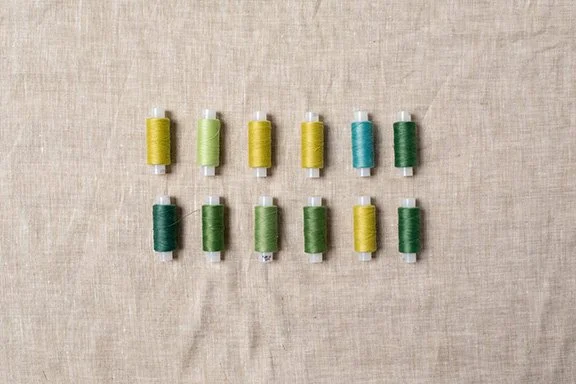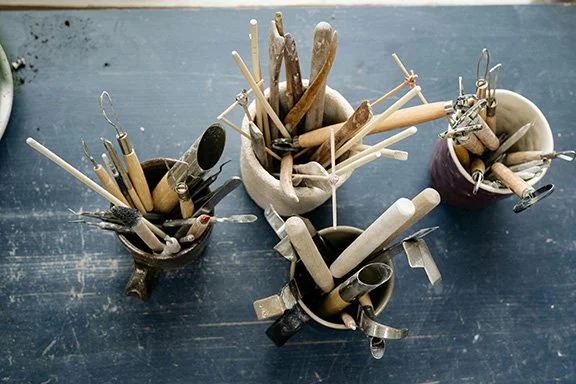
projects and crafts
-

Sewing Machine Organizer Pad and Thread Catcher
Keep your sewing space tidy and beautiful with this practical and charming mat-and-catcher combo. Designed to sit under your sewing machine, the mat measures 23 inches square and features a deep hanging pocket with four divided sections—perfect for holding scissors, seam rippers, pens, and small tools right where you need them.
A detachable thread catcher buttons onto the end of the mat, hanging conveniently off the table edge. The sturdy basket-style catcher features a structured rim for easy cleanup and a loop that slips off for quick emptying. This is a beginner-friendly project that adds both form and function to any sewing room—and makes a thoughtful gift for fellow makers.
-

Build a Bat House
Welcome nature’s nighttime helpers.
This simple woodworking project lets you build a cozy cedar bat house to mount on your barn, shed, or post. Designed to shelter native bats and support natural pest control, it’s a perfect beginner build that fits right in with homestead values. The final piece has a single-chamber design, a vent for airflow, and a grooved interior to make it bat-friendly.Encourage pollinators, reduce mosquitos, and support local wildlife—all with one small, satisfying build.
-

Make a nature-inspired sun catcher
A quiet way to capture the beauty of creation.
Using pressed leaves, petals, or herbs, kids can create simple sun catchers that glow with natural color. Made with clear contact paper or transparency sheets, these collage-style hangings are an easy, sensory-rich way to explore seasons and reflect on the rhythms of God’s world.Perfect for little hands and peaceful moments, this activity is ideal for Sabbath afternoons, nature studies, or homeschool craft time.
Upcycled Candle Lanterns from Celsius Cans
A cozy winter craft that turns yesterday’s drink into tomorrow’s gift.
You’ve probably tossed more aluminum cans than you can count—but these sleek Celsius cans make perfect raw material for something warm and glowy. This little project transforms them into starburst lanterns that cast gentle light across a winter table.
Press evenly onto the towel. Kids can make patterns: their own hand prints, stripes, scattered repeats, or borders.
5. Hand letter a sentiment, if you want, with a paint brush, a paint pen, or a marker.
6. Let dry completely.
7. Heat-set with an iron according to your paint instructions.
8. Fold neatly for gifting.
Tips: Limit kids to 1–2 colors for cleaner results. Organic “kid patterns” look modern and intentional
6. Package in a small bag with planting instructions: “Place on soil before a rain or water well.”
Tips: Wildflower mixes work best. Avoid seeds that need transplanting.
Handmade Gifts Kids Can Make: Quick Directions for Three Unique Projects
Hand-Stamped Tea Towels (Potato Stamps, Hands, or Store-Bought Stamps)
Materials: flour sack towels, fabric paint, potatoes or rubber stamps, small brush, foam plate, iron
Wash and dry the flour sack towels.
If using potatoes: cut one potato in half, press a small cookie cutter into the flat side, and slice around it to create the raised shape.
Pour a small amount of fabric paint onto a foam plate.
Dip the potato stamp or rubber stamp (or your child’s hand!) lightly into the paint. Blot once to avoid globs..
Seed Balls (Fun, Messy, and Perfect for Gardeners)
Materials: 1 cup dry clay powder, 1 cup potting soil, 1–2 packets wildflower seeds, spray bottle, tray for drying
Mix clay powder and potting soil in a bowl.
Add seeds and stir to distribute evenly.
Spray lightly with water until the mixture holds together like cookie dough.
Roll small balls, about 1 inch across. Kids love this part.
Place on a tray and let dry for 24–48 hours.
Hand-Rolled Beeswax Candles (Zero Mess, Super Easy)
Materials: beeswax sheets, pre-waxed wick, cutting ruler, hair dryer (optional), scissors
Cut beeswax sheets to the desired candle height.
Cut a wick slightly longer than the sheet.
Place the wick along one edge of the beeswax.
Roll tightly from the wick side, pressing gently as you go.
If the wax cracks, warm it with a hair dryer for 3–5 seconds.
6. Trim the wick to ¼ inch.
7. Tie two candles together with twine or ribbon for gifting.
Tips: Kids can add color bands by cutting thin strips of a contrasting wax sheet and pressing them onto the finished candle.
Check out these other projects and crafts on the website!
Making Your Own Muslin Produce Bags to keep your produce fresh, longer.





